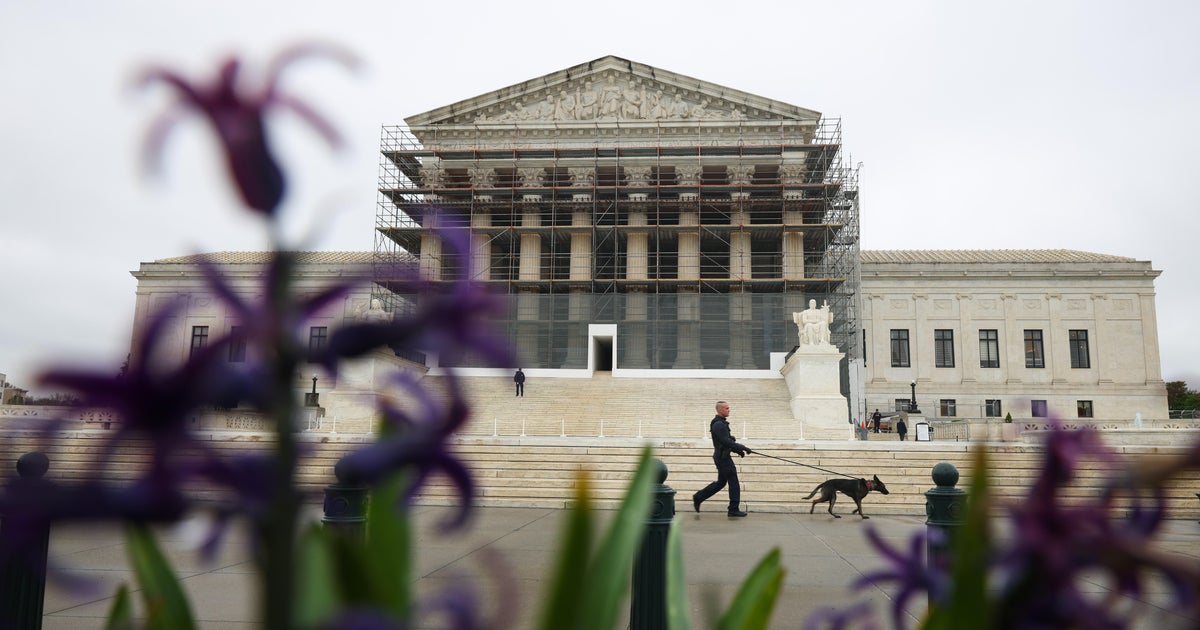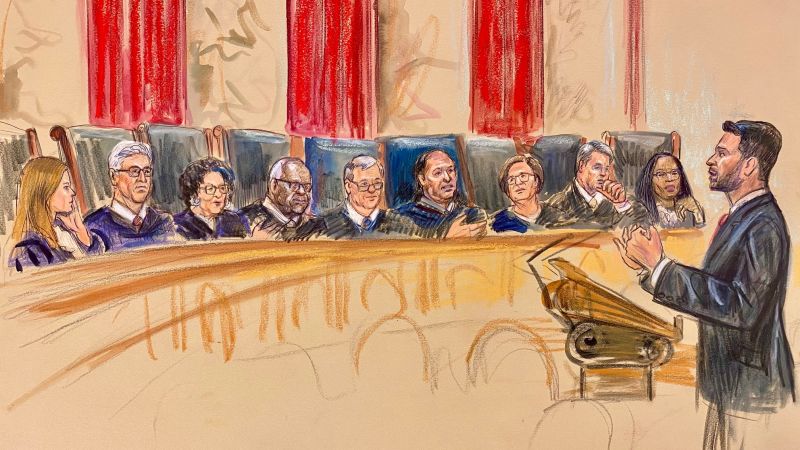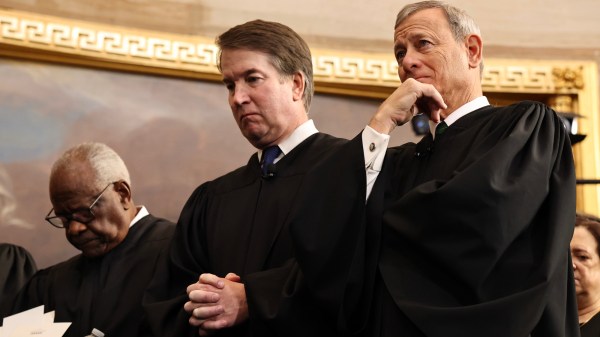CBS News Live

Washington — The Supreme Court on Wednesday rejected a challenge brought by Texas and a group of landowners to the Nuclear Regulatory Commission's approval of a private company's plan to temporarily store thousands of metric tons of nuclear waste at a facility in the state.
Justice Brett Kavanaugh wrote in a decision for a 6-3 court in the case of NRC v. Texas that neither Texas nor a land developer were parties to the commission's licensing proceeding, and therefore are not entitled to obtain judicial review. Justices Neil Gorsuch, Clarence Thomas and Samuel Alito dissented.
The court reversed a decision of the U.S. Court of Appeals for the 5th Circuit that allowed the case to move forward and ordered the lower court to deny or dismiss the petitions for review filed by Texas and the landowners. It did not address a second matter raised in the dispute regarding whether the Nuclear Regulatory Commission has the authority to license private companies to store nuclear waste offsite.
"In short, the Hobbs Act affords judicial review to those who were parties before the commission. Here, obtaining party status required Texas or Fasken to successfully intervene in the commission proceeding," Kavanaugh wrote for the six-justice majority. "Because neither Texas nor Fasken successfully intervened, they may not obtain judicial review of the commission's licensing decision under the Hobbs Act."
The Hobbs Act is a 1950 law that dictates when a "party aggrieved" by an agency's final order can seek review from a federal appeals court.
How to address the problem of nuclear waste has been complicated by politics since the advent of nuclear power last century. In 1982, Congress enacted a law requiring the federal government to establish a permanent facility to store spent nuclear fuel. Yucca Mountain in Nevada was later selected to house this repository.
But the site hasn't yet been established amid pushback from the state, and the project was halted during the Obama administration. It's unclear whether the Trump administration will seek to restart the Yucca Mountain project.
The issue of where to put the increasing amount of spent fuel remains. More than 90,000 metric tons of nuclear waste from commercial power plants are currently privately stored, both at or away from nuclear reactor sites, according to the Government Accountability Office. Plants continue to generate an additional 2,000 metric tons of spent fuel each year, as nearly 20% of the nation's electricity is supplied by nuclear energy, according to the Department of Energy.
Spent fuel from a nuclear reactor can remain radioactive and pose health risks for thousands of years, according to the U.S. Energy Information Administration.
In September 2021, the Nuclear Regulatory Commission issued a license to a company called Interim Storage Partners that allowed it to store 5,000 metric tons, and up to 40,000 metric tons, of nuclear waste in dry-cask, above-ground storage for up to 40 years.
The facility would be built in Andrews County, Texas, located west of Dallas and near the New Mexico border. The area is already home to a disposal site for low-level radioactive waste.
Before the commission granted the license, the state submitted comments opposing the storage site and warned against housing spent nuclear fuel on a "concrete pad" above Texas' Permian Basin, where 250,000 active oil and gas wells capture 40% of the nation's oil reserves.
Gov. Greg Abbott and the Texas Commission on Environmental Equality did not try to intervene during the Nuclear Regulatory Commission's proceedings. But other groups did try to object, including a company that owns land in the Permian Basin, though its request was denied by the commission.
The state and landowners asked the U.S. Court of Appeals for the 5th Circuit to review the government's license to Interim Storage Partners, and the court allowed the legal battle to proceed. The 5th Circuit also ruled that the Nuclear Regulatory Commission did not have the authority to issue a license that let nuclear waste to be held at privately owned facilities offsite from where the spent fuel was generated.
Whether the commission could allow private companies to temporarily store nuclear waste was only one part of the dispute before the Supreme Court. The first, key issue for the justices to weigh was whether Texas and landowners who challenged the license to Interim Storage Partners could do so in the first place, since they didn't intervene at an earlier stage in the licensing process.
The high court determined that Texas and the landowners could not seek judicial review of the commission's decision to issue Interim Storage Partners its license. Still, Kavanaugh noted that "history and precedent" offer support for the commission's interpretation that the Atomic Energy Act allows spent nuclear fuel to be stored offsite at private facilities.
"To be clear, because Texas and Fasken's claims are not judicially reviewable, we need not and do not decide the ultimate question of statutory authority that the dissent focuses on," he wrote for the six-justice majority. "So that there is no confusion, however, we underscore that in resting on the threshold reviewability issue, we are not somehow assuming or buying into a premise that the commission is wrong on the underlying merits."
Writing in dissent, Gorsuch, joined by Thomas and Alito, said that the commission's decision to issue the license to Interim Storage Partners was unlawful. Accepting the commission's argument that Texas and Fasken could not seek review of its licensing decision "requires us to ignore the full scope of the agency's own licensing proceeding," he wrote.
Gorsuch continued: "It forces us to reimagine a statute expanding public access to the agency's administrative proceedings into one restricting access. And it asks us to believe that the very state in which the agency intends to store spent nuclear fuel indefinitely cannot be heard in court to complain about the agency's plans. Because nothing in the law requires us to indulge any of those fantasies, I respectfully dissent. "
Melissa Quinn is a politics reporter for CBSNews.com. She has written for outlets including the Washington Examiner, Daily Signal and Alexandria Times. Melissa covers U.S. politics, with a focus on the Supreme Court and federal courts.










